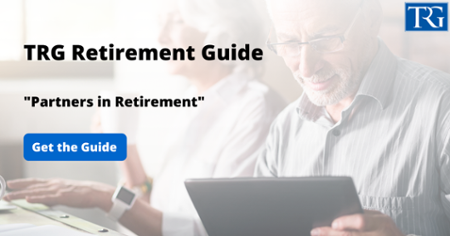In the past year, cybersecurity has arguably become a more prominent and contentious topic than at any other time in the twenty-first century. As a result of high-profile data intrusions and thefts, the business community is understandably apprehensive about ransomware attacks. An additional factor has been introduced to the situation by the unprecedented transition to remote work, in which employees now access company data from locations beyond the IT networks and cybersecurity infrastructure of their employers.
There is an increasing expectation for employees to assume responsibility for cybersecurity. HR professionals are uniquely positioned to address these cybersecurity concerns, as their access to sensitive employee and company data is unparalleled. Consequently, three cybersecurity recommendations for HR professionals are provided below.
VPNs
Virtual Private Networks (VPNs) have evolved into indispensable cybersecurity instruments for remote workers, spanning industries, due to the increasing number of individuals accessing organization data and networks from their residences and collaborative environments. By employing a virtual private network (VPN), one can effectively establish a secure network connection through the obfuscation of online identity and encryption of internet traffic. The aim is to impede the ability of unauthorized individuals or intruders to monitor, intercept, and pilfer your data.
A virtual private network (VPN) is a critical cybersecurity recommendation for human resources (HR) personnel. This is due to the fact that remote work involves transmitting and receiving sensitive company and employee information from locations outside the secure boundaries of company networks. In the event that an HR professional is entrusted with the responsibility of handling and managing sensitive employee information, it is incumbent upon the organization and the employee to do the moral and responsible thing by implementing measures that impede unauthorized access, irrespective of their affiliation with another organization.
Two-factor Authentication
Two-factor authentication is one of the universal cybersecurity best practices and pertains to the additional steps that must be taken in order to access a database or network. Single-factor authentication (i.e., a password alone) implies that in order to gain access to your data, cybercriminals need only guess or crack your password. Phishing, spidering, social engineering, brute force attacks, rainbow table attacks, and network analyzing tools are prevalent methods employed by hackers to acquire passwords, notwithstanding one's convictions to the contrary.
An additional prudent cybersecurity measure for HR professionals and organizations at large, is to implement two-factor authentication. This requires unauthorized individuals to bypass an additional layer of security in order to obtain access to the information. Having a password and a security question that only you know the answer to significantly complicates matters for criminals. It is imperative that all applications and programs utilized by HR professionals who are operating remotely incorporate two-factor authentication. This is especially true for benefits platforms that house sensitive employee data subject to compliance obligations, and health data in particular.
A significant trend for the 60-year-old demographic in Fortune 500 companies is the growing importance of cybersecurity training specifically tailored for HR professionals. A 2023 study by the National Institute of Standards and Technology (NIST) emphasized that HR teams are increasingly targeted by cybercriminals due to their access to sensitive employee data. The study recommends specialized cybersecurity training for HR professionals, focusing on recognizing and mitigating specific threats like phishing and ransomware. This training is crucial for senior HR professionals, equipping them with the necessary skills to protect sensitive data and ensuring they remain vigilant and effective guardians of employee information in the evolving cyber threat landscape.
Enhancing cybersecurity for HR professionals, especially in companies, is akin to fortifying a medieval castle. In this analogy, the castle represents the company's sensitive data, with HR professionals as the custodians of the keep, where the most valuable assets are stored. Implementing a VPN is like constructing a hidden, secure tunnel for messengers (data transfer) to enter and exit the castle without being seen by prying eyes (cyber attackers). This tunnel ensures that messages (data) can be sent and received safely, without interception.
Two-factor authentication is like adding a series of gates and checkpoints at the castle entrance. Even if an intruder manages to breach the outer wall (password), they still face additional layers of defense before gaining access to the castle's inner sanctum. This extra layer of security ensures that only those with the correct credentials (authorized personnel) can enter.
For the experienced professionals and retirees, this analogy highlights the critical role of robust cybersecurity measures in safeguarding sensitive information. Just as a well-fortified castle can withstand sieges and protect its treasures, a company equipped with strong cybersecurity practices can protect its invaluable data from cyber threats, ensuring the safety and integrity of its operations in the digital realm...
Source: Blog – Hppy